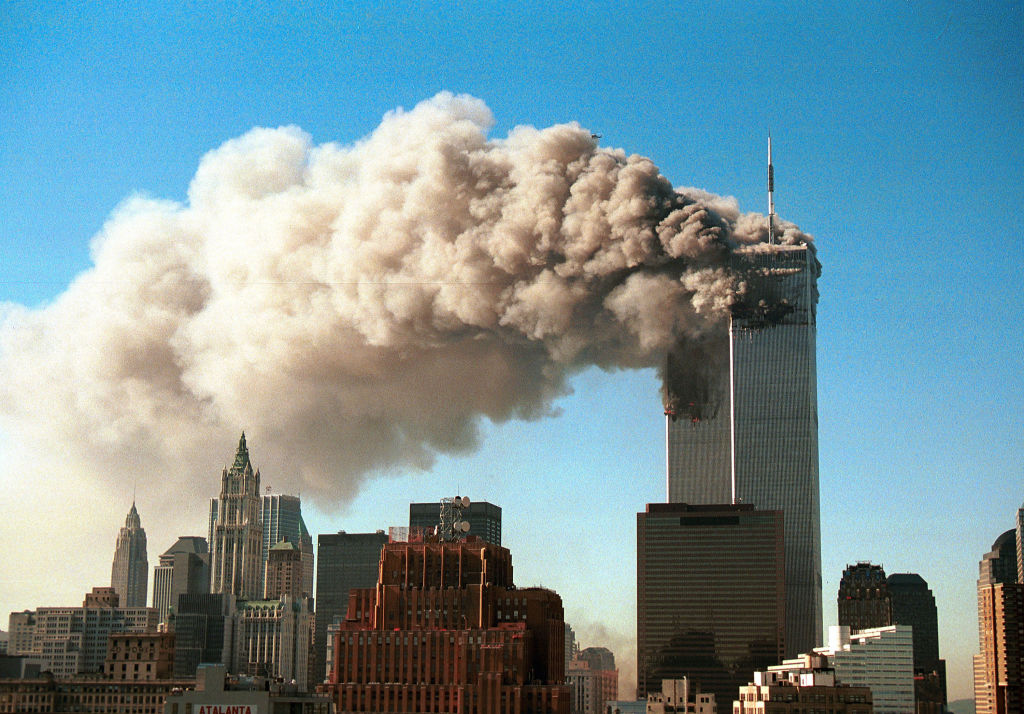On its 20th anniversary, the world will stop and mourn the 2,977 lives lost on September 11, 2021 when the extremist terrorist group Al Qaeda hijacked four planes and conducted suicide attacks on the Twin Towers in New York City, the Pentagon in Washington, D.C. and a passenger plane in Shanksville, Pennsylvania.
Clouds of debris, confused U.S. leaders, and the burning buildings created a fog in many people’s minds and made them second guess what they were really seeing on TV.
Two 767 Boeing airplanes crashed into two of the largest skyscrapers in the country in one of the most populous cities in the world.
Mothers, fathers, aunts, uncles, grandparents, cousins, friends and several peoples’ loved ones were trapped inside the fiery towers never to be seen again.
For some Americans the 9/11 attack is history’s past, but for others that moment in time was a day they will never forget.
Rice University Political Science professor Richard Stoll said he was at the gym working out on a stationary bike when he watched the second plane crash into the South Tower.
“I remember thinking the U.S. government is going to go after those people that did it,” Stoll said.
According to Texas A&M University International Affairs Department Chair Dr. Gregory Gause, the Al-Qaeda bombings on U.S. embassies in Kenya, Tanzania, and a U.S. Naval port in Yemen were all building up to the 9/11 attack.
“There had been a lot of news reports leading up to 9/11 and all sorts of indications that something was happening,” Gause said. “So I guess it was just a sinking feeling that this was just the next thing in that sequence.”
After the attack, NYC and the entire country were in recovery mode. First responders, volunteers, and good samaritans worked to repair the foundation of security that were challenged by the attack.
While everyday citizens were reeling from the physical, emotional, and mental trauma of the attack, former President George W. Bush and the U.S. armed forces were in full defense mode.
According to reports, after 9/11, the U.S. warned Afghanistan of possible military force unless they turned in Al-Qaeda leader Osama bin Laden and other terrorists who were behind the tragic attack.
But the Afghan government requested the U.S. provide clear evidence that bin Laden was involved in 9/11 which only escalated tensions between the U.S. and the Taliban even more.
At the same time, Stoll emphasized that the Taliban was being supported by Al-Qaeda and was afraid to turn in their allies.
“They [Taliban] felt that they had been getting support from Al-Qaeda to stay in power and felt if they turned over bin Laden and others to the United States that it may result in the fall of their government,” Stoll said.
As Americans’ approval for the war increased and intelligence agencies negotiated with Afghanistan, the legislative branch also weighed in on the final decision.
In 2001, Rep. Barbara Lee, a Democrat from Oakland, California, was the only representative to vote against the authorization for the use of military force in Afghanistan. The 420 to one vote would lead to 20 years in the Middle East, a following war in Iraq, and two trillion dollars spent on military funding.
In addition to pursuing bin Laden and other terrorists in the Middle East, according to both professors, America was also on a mission to rebuild the nation to look more like a democracy.
“We’ve had a twenty year experiment on whether the U.S. through force of arms can change the politics of Middle Eastern countries and I think we’ve seen it was a failure,” Gause said. “That doesn’t necessarily mean that American military power is weak or useless, it’s just that the task that was set for it by the political leadership … to look basically more like us was a failure.”
Stoll also added that in the mission to capture terrorists and rebuild the nation, protecting Afghanistan allies and civilians became another priority for the United States.
“If you live in a village in Afghanistan, then you probably know the people that aren’t really villagers and are troublemakers,” Stoll said. “So we needed their help to identify the people we were going after. The jobs of the U.S. expanded to try to help those Afghan people male and female.”
In August, President Biden stood firm on his stance to withdraw all troops and Afghan allies from the country, but was met with immediate criticism on both sides of the aisle on how it was handled.
According to reports, in July, 70 percent of Americans were supportive of withdrawing troops from Afghanistan, but only 25 percent were in favor of how allies and soldiers were being evacuated.
Another criticism from the withdrawal is the potential collapse of women’s rights under the Taliban rule.
“The U.S. made a determined effort as best we could to see humans as equal, whether it has to do with the way they dress or walking across the street,” Stoll said. “And worked to see that more women had positions of authority whether it be in the government or in the private sector.”
Nevertheless, as America picks up the pieces from the war and Afghan evacuees resettle in areas across the country and the state, Texas continues to honor the day with an exclusive artifact in the Fort Worth Science and History Museum.
According to the museum’s Chief Scientist Dr. Morgan Rehnberg, 3 foot tall, 8,000 pound beam, was located around the 110th floor, just above the impact zone where the first plane struck the North Tower.
“This is a piece that is within feet of the plane striking the tower so you can see how twisted it is and the violence of the impact,” Rehnberg said. “It is the largest permanently displayed piece of the Twin Towers in the state of Texas.”
In light of the anniversary, Rehnberg also said Texans and all Americans should reflect on the lessons learned from this historic event.
“People should reflect on the tremendous courage that was shown by first responders who rushed into the buildings and by individual citizens who helped get people out,” Rehnberg said. “I think we should also reflect on ways in which our reaction wasn’t living up to our best ideals. There was a rise in Islamophobia and anti-Arab, anti-Muslim sentiments and so I think we saw in some ways the best and worst of oursleves after the attack.”
Photo: Robert Giroux/Getty Images
Kennedy is a recent graduate of the University of St.Thomas in Houston where she served as Editor-in-Chief of the Celt Independent. Kennedy brings her experience of writing about social justice issues to the Texas Signal where she serves as our Political Reporter. She does everything from covering crime beats, Texas politics, and community activism. Kennedy is a passionate reporter, avid reader, coffee enthusiast, and loves to travel.





